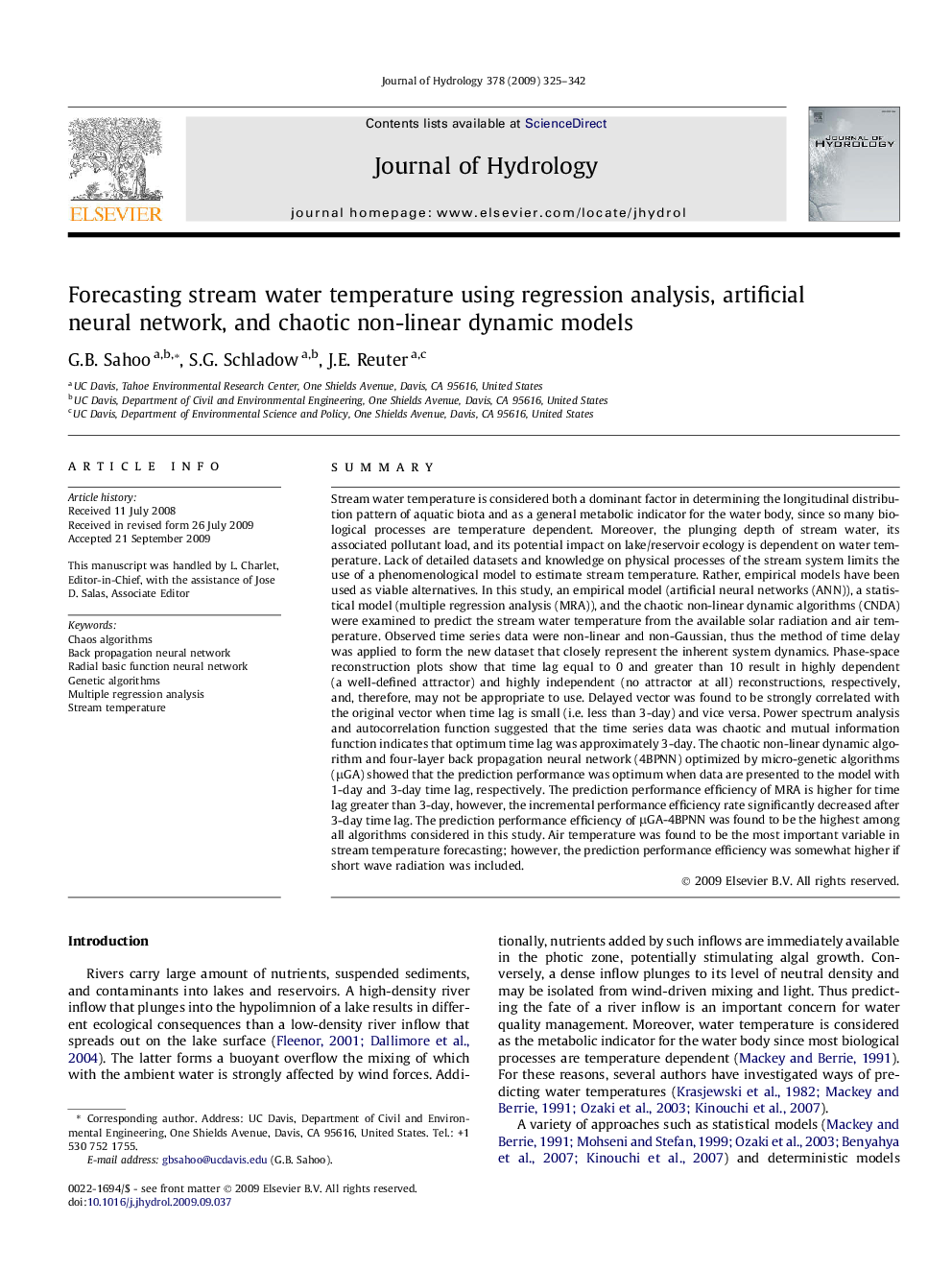| کد مقاله | کد نشریه | سال انتشار | مقاله انگلیسی | نسخه تمام متن |
|---|---|---|---|---|
| 4578561 | 1630068 | 2009 | 18 صفحه PDF | دانلود رایگان |

SummaryStream water temperature is considered both a dominant factor in determining the longitudinal distribution pattern of aquatic biota and as a general metabolic indicator for the water body, since so many biological processes are temperature dependent. Moreover, the plunging depth of stream water, its associated pollutant load, and its potential impact on lake/reservoir ecology is dependent on water temperature. Lack of detailed datasets and knowledge on physical processes of the stream system limits the use of a phenomenological model to estimate stream temperature. Rather, empirical models have been used as viable alternatives. In this study, an empirical model (artificial neural networks (ANN)), a statistical model (multiple regression analysis (MRA)), and the chaotic non-linear dynamic algorithms (CNDA) were examined to predict the stream water temperature from the available solar radiation and air temperature. Observed time series data were non-linear and non-Gaussian, thus the method of time delay was applied to form the new dataset that closely represent the inherent system dynamics. Phase-space reconstruction plots show that time lag equal to 0 and greater than 10 result in highly dependent (a well-defined attractor) and highly independent (no attractor at all) reconstructions, respectively, and, therefore, may not be appropriate to use. Delayed vector was found to be strongly correlated with the original vector when time lag is small (i.e. less than 3-day) and vice versa. Power spectrum analysis and autocorrelation function suggested that the time series data was chaotic and mutual information function indicates that optimum time lag was approximately 3-day. The chaotic non-linear dynamic algorithm and four-layer back propagation neural network (4BPNN) optimized by micro-genetic algorithms (μGA) showed that the prediction performance was optimum when data are presented to the model with 1-day and 3-day time lag, respectively. The prediction performance efficiency of MRA is higher for time lag greater than 3-day, however, the incremental performance efficiency rate significantly decreased after 3-day time lag. The prediction performance efficiency of μGA-4BPNN was found to be the highest among all algorithms considered in this study. Air temperature was found to be the most important variable in stream temperature forecasting; however, the prediction performance efficiency was somewhat higher if short wave radiation was included.
Journal: Journal of Hydrology - Volume 378, Issues 3–4, 30 November 2009, Pages 325–342